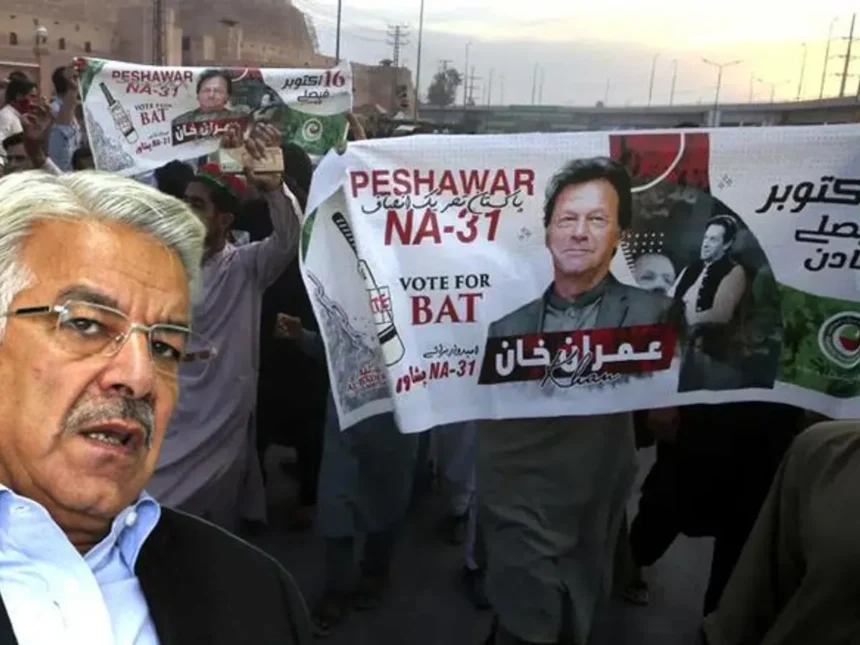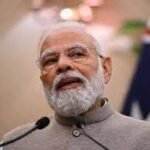In the wake of violent protests and attacks on military installations following the arrest of former Prime Minister Imran Khan, Pakistan’s Defence Minister, Khawaja Asif, announced on Wednesday that the government is contemplating a potential ban on Imran Khan’s political party, Pakistan Tehreek-e-Insaf (PTI).
The arrest of 70-year-old Imran Khan by paramilitary Rangers on May 9 triggered widespread demonstrations and unrest across the country. Khan’s party workers were involved in vandalizing numerous military installations, including the Lahore Corps Commander house, Mianwali airbase, and the ISI building in Faisalabad. Shockingly, the mob even attacked the Army headquarters in Rawalpindi, marking a disturbing escalation. The violent clashes between protesters and law enforcement resulted in a reported death toll of 10.
Speaking to the media, Defence Minister Khawaja Asif expressed concern over Imran Khan’s failure to condemn the attacks by his supporters on both military and civilian installations. This reluctance to denounce the violence has fueled speculation regarding the potential ban on the PTI, a significant political force in Pakistan.
The decision to consider banning the PTI stems from the government’s commitment to maintaining law and order and protecting the country’s security apparatus. The attacks on military installations are viewed as a direct assault on the state’s integrity and sovereignty. By contemplating a ban on the PTI, the government aims to address the issue of violent protests and send a clear message that such acts will not be tolerated.
Imran Khan, the charismatic leader of the PTI, has been a prominent figure in Pakistani politics for several years. His party’s rise to power and subsequent role as the main opposition force have significantly impacted the political landscape of the country. However, the recent events have highlighted a growing concern over the conduct and actions of PTI supporters.
While Khan himself may not have directly incited or condoned the attacks, the government expects him to take responsibility for the actions of his party members. Failure to do so raises questions about his leadership and the party’s commitment to democratic principles and peaceful protest.
The violent protests and attacks have also strained the relationship between the military and civilian authorities. The military, a powerful institution in Pakistan, plays a crucial role in the country’s governance. Any threat to military installations is perceived as a challenge to the stability and security of the nation. Thus, the government’s contemplation of banning the PTI serves as a measure to restore harmony and reinforce the military’s faith in civilian leadership.
The decision to ban a political party is a significant step and requires careful consideration, taking into account legal and constitutional obligations. It is not a decision to be taken lightly, as it could have far-reaching consequences for Pakistan’s political landscape. However, the government believes that in order to preserve peace, stability, and the rule of law, such measures may be necessary.
As the situation unfolds, the government will likely assess all available options, including engaging with Imran Khan and the PTI leadership to address concerns and seek a peaceful resolution. The government may also consider imposing strict penalties on those involved in the attacks on military installations to demonstrate its commitment to upholding the law.
The violent protests and attacks on military installations following Imran Khan’s arrest have prompted the Pakistani government to consider a potential ban on his party, the PTI. The government’s primary objective is to ensure the preservation of law and order, protect national security, and foster harmonious relations between the military and civilian authorities. The decision to ban a political party is a weighty matter and necessitates careful deliberation, but the government is determined to take appropriate action to address the recent unrest.




